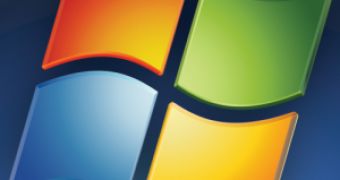The Windows operating system is not going anywhere for a very long time. In fact, consumers should be prepared to still buy Windows over a decade from the releases of Windows Vista's successors Windows 7 and Windows 8. Microsoft might be hard at work developing non-Windows operating systems such as Singularity and Midori, but the company will not give up on its core product - the Windows platform. With Windows 7 cooking, and with Windows 8 already in planning, the Redmond company is also looking ahead to the future of its proprietary operating system, well beyond the immediate horizon. According to a member of the Windows Core Networking team, Windows operating systems will live to see 2023 and even beyond that.
At the end of the past week, a job posting went live from the Windows Core Networking team for a Software Development Engineer in Test. "Do you want to fundamentally improve the Windows operating system? Are you interested is helping improve customer satisfaction of all future Windows OS releases and many products and developers over the next 10-15 years? If so, consider joining the COM team," reads an excerpt of the job listing (emphasis added).
Windows 7 is currently planned for availability by the end of 2009. Assuming that under the leadership of Steven Sinofsky, Senior Vice President, Windows and Windows Live Engineering Group, delivery deadlines will be met with the same accuracy as for the Office System when it was under his lead, and taking in consideration the more frequent three-year apart Windows releases, Windows 8 might drop in the 2011- 2012 time frame. Extended support for Windows XP Service Pack 3 will only be retired on April 2014.
In this context, it is clear that just as Windows 7 enjoyed over a decade of life, the same could be valid for Windows Vista, Windows 7 and Windows 8. But Microsoft is also bound to continue pushing ahead with Windows releases over the next 10-15 years. And, in this regard, the question is what the Redmond company will do with non-Windows operating systems such as Midori and Singularity.
Developed in managed code, Singularity is already available for download and testing. Midori, however, is still kept under wraps, and although speculation is already praising it as the successor of the Windows operating system, this is unlikely for what appears to be the next 15 years. However, unconfirmed reports indicate that future key components of Midori will be ported to Windows and introduced into releases as early as Windows 7.
In this context, Mary Jo Foley pointed out that Midori managed-code execution projects Redhawk and MinSafe, built by the Developer and the Windows Divisions respectively, could bring a new runtime as well as back-end compiler, and take User Mode Driver Framework (UMDF) to the next level via a new object framework, complemented by a new base class library.
With Windows operating systems living well after 2023, but with non-Windows OS components being integrated into future releases, the real question is, in 15 years, how much of Windows will still be actually related to what the company is offering today, and how much it will be Midori, or any additional non-Windows projects Microsoft has been cooking. What might survive in the end is just the Windows brand, slapped onto a managed code product that, architecturally, has nothing to do with the classic Windows platform.

 14 DAY TRIAL //
14 DAY TRIAL //